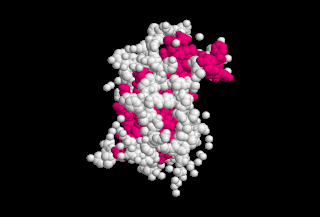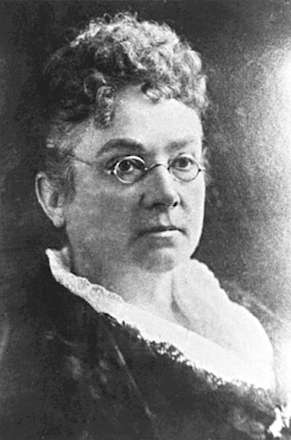
A physician, medical practitioner, medical doctor, or simply doctor is a health professional who practices medicine, which is concerned with promoting, maintaining or restoring health through the study, diagnosis, prognosis and treatment of disease, injury, and other physical and mental impairments. Physicians may focus their practice on certain disease categories, types of patients, and methods of treatment—known as specialities—or they may assume responsibility for the provision of continuing and comprehensive medical care to individuals, families, and communities—known as general practice. Medical practice properly requires both a detailed knowledge of the academic disciplines, such as anatomy and physiology, underlying diseases, and their treatment, which is the science of medicine, and a decent competence in its applied practice, which is the art or craft of the profession.

Growth hormone (GH) or somatotropin, also known as human growth hormone in its human form, is a peptide hormone that stimulates growth, cell reproduction, and cell regeneration in humans and other animals. It is thus important in human development. GH also stimulates production of insulin-like growth factor 1 (IGF-1) and increases the concentration of glucose and free fatty acids. It is a type of mitogen which is specific only to the receptors on certain types of cells. GH is a 191-amino acid, single-chain polypeptide that is synthesized, stored and secreted by somatotropic cells within the lateral wings of the anterior pituitary gland.

Emily Howard Stowe was a Canadian physician who was the first female physician to practise in Canada, the second licensed female physician in Canada and an activist for women's rights and suffrage. Stowe helped found the women's suffrage movement in Canada and campaigned for the country's first medical college for women.

Clopidogrel, sold under the brand name Plavix among others, is an antiplatelet medication used to reduce the risk of heart disease and stroke in those at high risk. It is also used together with aspirin in heart attacks and following the placement of a coronary artery stent. It is taken by mouth. Its effect starts about two hours after intake and lasts for five days.
Controversies regarding the use of human growth hormone (HGH) as treatment method have centered on the claims, products, and businesses related to the use of growth hormone as an anti-aging therapy. Most of these controversies fall into two categories:
- Claims of exaggerated, misleading, or unfounded assertions that growth hormone treatment safely and effectively slows or reverses the effects of aging.
- The sale of products that fraudulently or misleadingly purport to be growth hormone or to increase the user's own secretion of natural human growth hormone to a beneficial degree.

Abciximab, a glycoprotein IIb/IIIa receptor antagonist manufactured by Janssen Biologics BV and distributed by Eli Lilly under the trade name ReoPro, is a platelet aggregation inhibitor mainly used during and after coronary artery procedures like angioplasty to prevent platelets from sticking together and causing thrombus formation within the coronary artery. It is a glycoprotein IIb/IIIa inhibitor.

Sports medicine is a branch of medicine that deals with physical fitness and the treatment and prevention of injuries related to sports and exercise. Although most sports teams have employed team physicians for many years, it is only since the late 20th century that sports medicine emerged as a distinct field of health care. In many countries, now over 50, sports medicine is a recognized medical specialty. In the majority of countries where sports medicine is recognized and practiced, it is a physician (non-surgical) specialty, but in some, it can equally be a surgical or non-surgical medical specialty, and also a specialty field within primary care. In other contexts, the field of sports medicine encompasses the scope of both medical specialists as well as allied health practitioners who work in the field of sport, such as physiotherapists, athletic trainers, podiatrists and exercise physiologists.

Eptifibatide, is an antiplatelet drug of the glycoprotein IIb/IIIa inhibitor class. Eptifibatide is a cyclic heptapeptide derived from a disintegrin protein found in the venom of the southeastern pygmy rattlesnake. It belongs to the class of the arginin-glycin-aspartat-mimetics and reversibly binds to platelets. Eptifibatide has a short half-life. The drug is the third inhibitor of GPIIb/IIIa that has found broad acceptance after the specific antibody abciximab and the non-peptide tirofiban entered the global market.
Mark Robin Geier is an American former physician and controversial professional witness who testified in more than 90 cases regarding allegations of injury or illness caused by vaccines. Since 2011, Geier's medical license has been suspended or revoked in every state in which he was licensed over concerns about his autism treatments and his misrepresentation of his credentials to the Maryland Board of Health, where he falsely claimed to be a board-certified geneticist and epidemiologist.
Donald Hardt Catlin was an American anti-doping scientist. He is one of the founders modern drug-testing in professional sports.

Platelet-rich plasma (PRP), also known as autologous conditioned plasma, is a concentrate of plasma protein derived from whole blood, centrifuged to remove red blood cells but retaining platelets. Though promoted for treating various medical conditions, evidence of its benefits was mixed as of 2020, showing effectiveness in certain conditions and ineffectiveness in others.
Growth hormones in sports refers to the use of growth hormones for athletic enhancement, as opposed to growth hormone treatment for medical therapy. Human Growth Hormone is a prescription medication in the US, meaning that its distribution and use without a prescription is illegal. There is limited evidence that GH doping improves athletic performance, although the perception that it does is common in the sporting community. Potential side effects of long term GH doping could mirror the symptoms found in sufferers of acromegaly, a disease in which the anterior pituitary gland produces excess growth hormone. These symptoms include swelling of the hands and feet, joint pain, fluid retention, and excessive sweating.
Actovegin is a highly filtered extract obtained from calf blood which enhances aerobic oxidation in mammals. This improves absorption of glucose and oxygen uptake in tissue, which may enhance physical performance and stamina. Injecting it into the blood track is not allowed. Local utilisation is allowed in countries like Canada and Sweden. Doctors like Hans-Wilhelm Müller-Wohlfahrt and Richard Steadman think Actovegin should be allowed in general. Others think there is not enough research, and persons from the World Anti-Doping Agency like Olivier Rabin is sceptical that it is having more than a placebo effect.

Collagen induction therapy (CIT), also known as microneedling, dermarolling, or skin needling, is a cosmetic procedure that involves repeatedly puncturing the skin with tiny, sterile needles. CIT should be separated from other contexts in which microneedling devices are used on the skin.
Alan J. Bauman is an American hair transplant surgeon and hair restoration physician. He is the Medical Director and CEO of Bauman Medical Hair Transplant and Hair Loss Treatment Center in Boca Raton, FL. Bauman is a Fellow of the International Society of Hair Restoration Surgery (FISHRS), a certified diplomate of the American Board of Hair Restoration Surgery (ABHRS), and member of the International Alliance of Hair Restoration Surgery (IAHRS). He is the founder of the non-profit 501(c)(3) Bauman Philanthropic Foundation, which provides pro bono hair restoration, surgical hair transplants, and medical treatments to patients in need.

Ramon (Ramón) Cugat Bertomeu is a Spanish surgeon specializing in orthopedic surgery, orthopaedic sports medicine, and arthroscopy. Cugat's first venture into sports was as a member of the team of orthopedic surgeons during the 1992 Summer Olympics in Barcelona. Since then, he has been bound to the Catalan Mutual Insurance of Football where he has operated on thousands of players from all categories most often the Association football players of FC Barcelona, among those being Pep Guardiola, Xavi, Samuel Eto'o, Andrés Iniesta, Carles Puyol, David Villa, Luis Suárez and Fernando Torres. He has also operated on multiple Manchester City players, including Benjamin Mendy, Ilkay Gundogan, David Silva, Kevin de Bruyne and Aymeric Laporte.

Sandro Galea is a physician, epidemiologist, and author. He is the Robert A. Knox professor and dean at the Boston University School of Public Health. He is the former Chair of Epidemiology at the Columbia University Mailman School of Public Health. Dr. Galea is past president of the Society for Epidemiologic Research and an elected member of the American Epidemiological Society. He was elected to the National Academy of Medicine in 2012, chairing two of the organization's reports on mental health in the military. He formerly served as chair of the New York City Department of Health and Mental Hygiene's Community Services Board and as a member of its Health Board.
Plasma needling is a minimally invasive aesthetic medical procedure purported to rejuvenate skin, minimize the appearance of hypertrophic and hypotrophic scars and stretchmarks, and reduce pattern hair loss through multimodal physical and biochemical cellular stimulation. It is a combination of classical medical micro-needling by Dermaroller or DermaPen. Both are used in Collagen induction therapy and PRP. The latter is used in Prolotherapy as well as in the Vampire facelift. The effects on fibroblasts, cells, and micro-needling stem cells are published in scientific publications regarding micro-needling, and the injection of PRP, has also been tested as a combined treatment.
Joshua A. Siegel is an American orthopedic surgeon and director of sports medicine. He is known for engaging arthroscopic surgical techniques in treating professional athletes and sports teams. He has been listed as Top Doctor six times by New Hampshire magazine. He is listed among the "59 Orthopaedic Surgeons Recommended by Healthcare Leaders". He is also listed among the "125 Knee Surgeons and Specialists to Know".
Raymond Rocco Monto is a Board Certified orthopaedic surgeon with a practice on Nantucket, Massachusetts. Monto's work includes developments in sports medicine, Tennis elbow surgery, hip arthroscopy, platelet-rich plasma, and innovative orthobiologic treatments for chronic disorders including Achilles tendonitis and plantar fasciitis. Monto lectures frequently in the United States and around the world.











